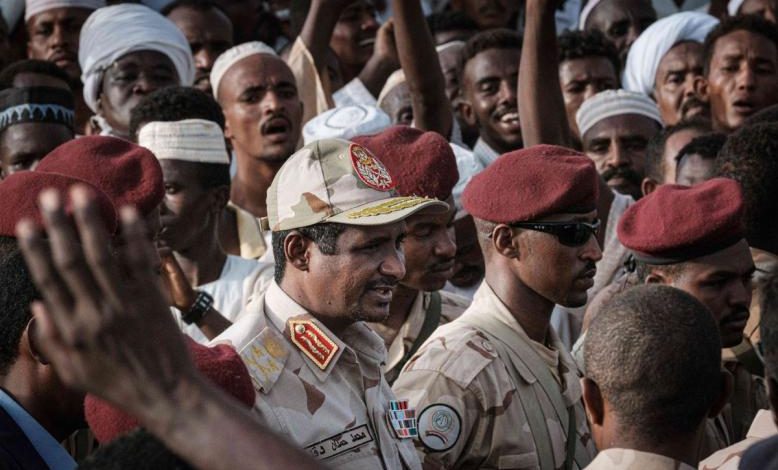Internal and external movements to contain the crisis between the Sudanese military forces

Efforts are being made by some internal and external forces to contain the crisis between the Sudanese army and the Rapid Support Forces in order to prevent some parties, led by the remnants of the former regime and Islamist forces, from signing the final political agreement and establishing civilian rule.
The civil powers that signed the framework agreement in Sudan announced their intention to hold an “urgent meeting” with the army command and rapid support forces, and put forward practical ideas to overcome the current tension and restore the political track, in a statement issued after an emergency meeting held on Thursday, to discuss the latest political developments in the country.
“The parties decided to meet immediately with the leadership of the Sudanese Armed Forces and to provide rapid support and practical ideas to overcome the current tension and restore the political process,” the statement said.
The signatories to the framework are the Declaration of Freedom and Change – the Central Council, other political forces (the Democratic Unionist Party of origin, the Popular Congress), civil society organizations, and armed movements aligned with the Revolutionary Front.
According to the statement, the civil powers discussed “the escalating activity of the dissolved National Congress (the former ruling party) and their relentless efforts to stir sedition and a wedge between the army and the Rapid Support Forces.”
Rapid Support is a fighting force led by Mohamed Hamdan Dogolo “Hemeti,” vice president of the Sovereign Council, which was established in 2013 to fight Darfur rebels (west), then to protect the border and subsequently maintain order. There is no official estimate of its number but it exceeds tens of thousands.
The statement spoke about “the related efforts of the civil powers that signed the framework agreement to contain the current crisis, which were represented in the continuous meetings over the past week, which were brought together by the leadership of the Sudanese Armed Forces and rapid support collectively and individually.”
“These efforts will continue until they end all forms of confrontation and restore the path of civil democratic transition,” he said.
Tensions have escalated in the last two days, against the backdrop of a dispute between the army and RSF over technical issues related to the unification of the military institution in Sudan.
At dawn on Thursday, the army, led by Abdul Fattah al-Burhan, chairman of the National Transitional Council (NTC), accused the Rapid Support Forces (RSF) of mobilizing, deploying and moving around Khartoum and a number of cities “without the approval of the army command.”
Parallel to the internal efforts, there have been external movements to contain the crisis. Hemeti discussed, on Thursday with three international envoys the developments of the political situation in the country, in a joint telephone meeting with the US envoy for East Africa, Sudan and South Sudan, Peter Lord, the United Kingdom special envoy for Sudan and South Sudan, Robert Fairweather, and the Norwegian special envoy for Sudan and South Sudan, John Anton.
In a statement, the Sovereign Council said that the meeting discussed the current political developments in Sudan and the efforts being exerted to complete the political process and to form a civilian transitional government, leading to a democratic transition with the holding of elections.
According to the statement, Hemeti “explained to the envoys the situation in the country and the efforts of the parties to reach the end of the political process,” affirming “commitment to what was signed in the framework agreement and the necessity of the military institution’s exit from political work.”
“He is keen to promote stability and support the process of democratic transition in the country,” Hemeti said.
According to the statement, the international envoys expressed their “support for the framework agreement to get out of the crisis as the basis for forming the next civil government in the country.”
“France, Germany, Norway, the UK, the US and the EU issued a statement on Thursday evening expressing deep concern at reports of rising tensions in Sudan and the risk of escalation between the armed forces and RSF.”
“These escalatory measures threaten to derail the negotiations towards the formation of a transitional civilian-led government. We call on Sudan’s military and civilian leaders to take effective steps to reduce tensions, and urge them to commit and engage constructively to resolve outstanding issues on security sector reform to create a unified, professional military future accountable to a civilian government.”
“Now is the time to enter into a final political agreement that fulfills the democratic aspirations of the people of Sudan. A civilian-led transitional government is essential to address Sudan’s pressing political, economic, security and humanitarian challenges and is key to unlocking international assistance.”
Saudi Arabia has offered to mediate between the military and swift support to end the crisis.












